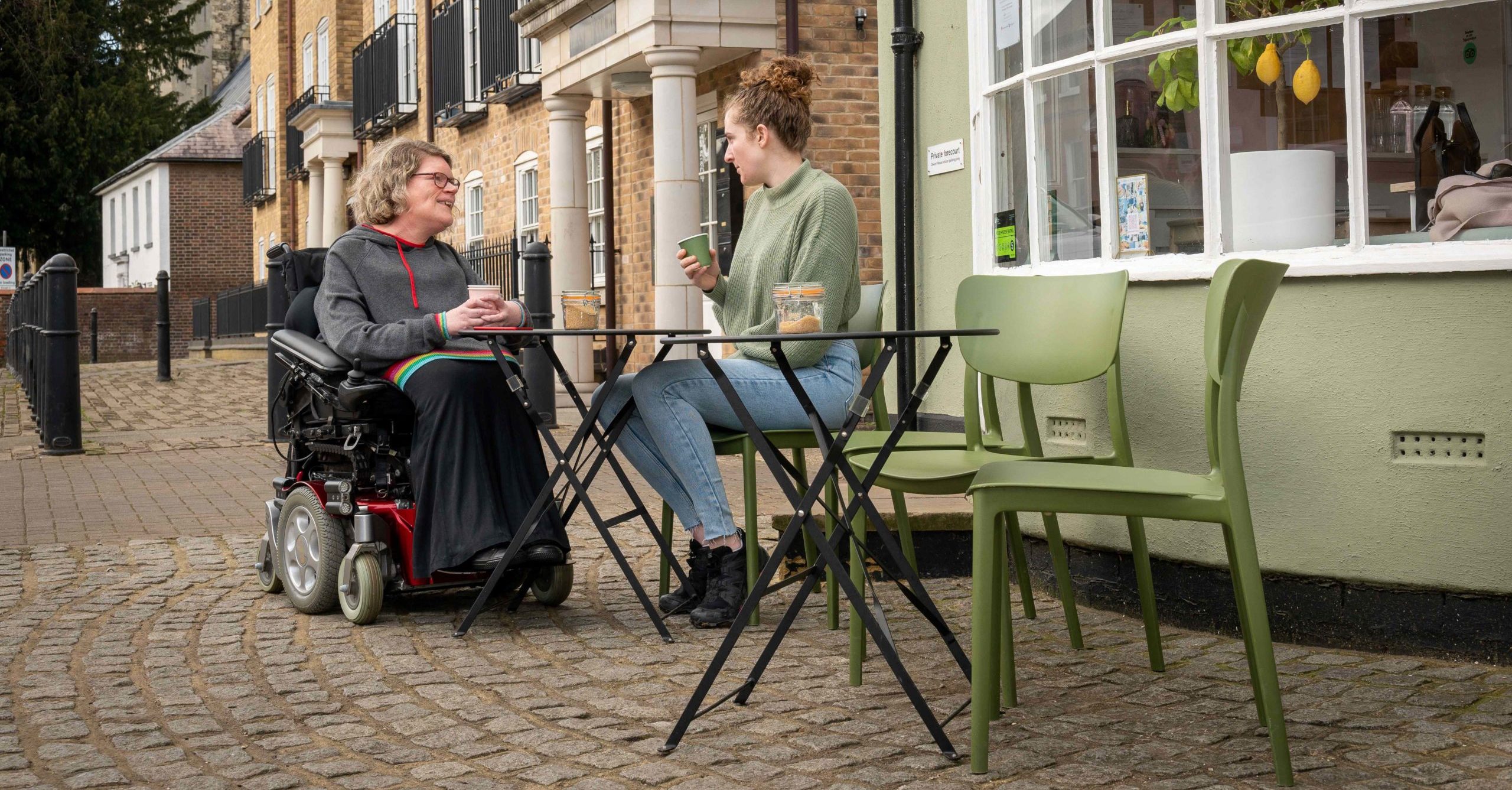Challenges and support

Challenges and support
Page last checked: April 2025
We hope you have found helpful information in our Recently Diagnosed with SMA section > and / or the Living with SMA pages for children and for teenagers.
Some parents say their experiences of bringing up a disabled child have strengthened their relationship with their partner; for others it can be a really testing time. Different emotional reactions and different roles can add to tensions and stresses. These resources may be helpful:
- Contact for Families With Disabled Children:
- Looking after your relationship >
- Relationships and Caring for a Disabled Child (pdf download) or phone 0808 808 3555 to order
- Relate – provides face-to-face, phone and online relationship counselling services. Some Relate centres offer subsidised counselling sessions.
At the time of a child’s diagnosis, we are often contacted by grandparents who are struggling with their own reactions and emotional and support needs. At the same time, they are wanting to do all they can to support their child, grandchild and family.
The Recently Diagnosed section of our website > may be helpful for you to read, particularly the ‘Hearing your Diagnosis’ information sheet that applies to – your grandchild. This talks about how and where to find possible support.
Contact have advice for grandparents > that may also be helpful.
You can find advice about financial support and many other topics in the Children > or Teenager > sections.
In almost all families, brothers and sisters have their ups and downs. Sometimes you love them. Sometimes they get on your nerves and annoy you. You seem to always be arguing.
When you have a sibling with SMA, your parent(s) have to think about your sibling’s physical care all the time. They can often seem to be living at the hospital.
Times when your sibling is very unwell are distressing for everyone. But all this time spent on them can understandably also make you feel left out, jealous and less important.
Sometimes you have to look after your sibling more than you would if they were not disabled. Sometimes you are happy to help, other times you may just feel resentful.
All these different feelings are quite understandable, but you may sometimes feel guilty about them. So it is good to talk to your parents or another adult in your family – perhaps an aunt or uncle.
There are also organisations that really understand how you may feel:
Contact > talks about some of the issues that may crop up for siblings of a disabled child and gives tips to respond to them. They also have a leaflet called Siblings >.
SIBS > – supports people who are growing up with, or have grown up with, a disabled brother or sister and have the following resources:
- For parents (and schools) for supporting younger siblings at home and school >
- Top tips and ideas for parents supporting sibling child(ren) >
They also offer direct support for young siblings >.
Together for Short Lives has written Understanding Siblings’ Needs >
Children’s hospices – some offer support for siblings through a variety of activities such as play therapy, newsletters, weekends / outings. Services vary; find your local children’s hospice >, along with details of who they can support and how.
Siblings Talking
Jordanne and Shannon talk about their relationship growing up and what things are like now.
Listen to the podcast or watch the video:
Chris asks Alex what it is like having a brother with SMA.
Listen to as a podcast or watch the video:
David shares his reflections of the close relationship between his sons, Chris and Alex.
and Alex.
We hope we have covered most of the topics that partners ask us about in the Living with SMA section for Adults > but please let us know if there is anything missing.
If you would like to add your perspective on being a partner to this page, please do get in touch at: information@smauk.org.uk
You will have your own reaction and emotional and support needs at the time of your friend’s child’s diagnosis and, as well as wanting to know more about the condition, will want to understand how your friend may be feeling and how best you can help.
The Recently Diagnosed section of our website > may be helpful for you to read, particularly the ‘Hearing your Diagnosis’ information sheet that applies to the family you know.
Friends are often a really valuable source of both practical and emotional support. For example, you might be able to help with household chores, look after other children in the family, or walk the dog.
Some families find it helpful to take holidays or short breaks with family or friends, as additional adult support can be very helpful to entertain siblings, help share the daily tasks, and for back-up in case of an emergency.
Friends often comment that they feel inadequate at the time of diagnosis, not knowing how they can help. Some organise fundraising events as a practical way of showing their support, to raise funds to help the family with the additional expenses they face and / or to raise awareness of SMA and support a charity. SMA UK’s Help Us > pages may be a useful resource.
